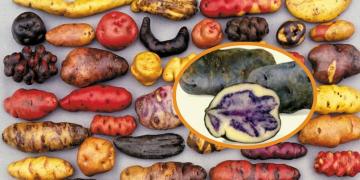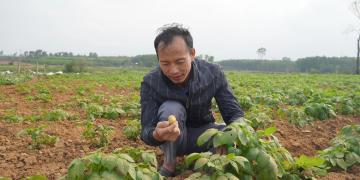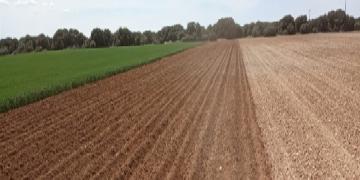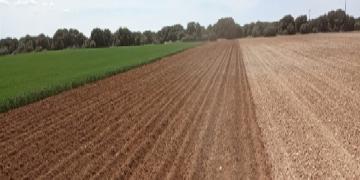Colombia: Colombian potatoes have the most advanced ’hotel’ in Latin America.
With an investment of $80 billion and the capacity to store 20,000 tons of potatoes for up to six months, PepsiCo’s Agro Storage will benefit hundreds of potato farmers.

"The five-star potato restaurant," with this phrase, Iván David Nemocón Espinosa, the mayor of Tenjo, Cundinamarca, euphorically describes the importance for the region of the inauguration of PepsiCo’s Agro Storage, its potato post-harvest and storage center, the most advanced and largest in Latin America. It features cutting-edge cold storage technology with 24/7 online monitoring, which guarantees product quality and optimizes the production chain.
With an investment of $80 billion and the capacity to store 20,000 tons of this product for up to six months, this modern and majestic infrastructure will benefit hundreds of small and medium-sized potato farmers in the Cundiboyacense highlands, reducing logistics costs and speeding up unloading times fivefold. It will also help optimize the supply chain and mitigate climatic fluctuations in harvests.
It is also a firm commitment by PepsiCo to Colombian agriculture and a sign of confidence in the sector, as a key driver of the national economy. The company is the largest industrial buyer of potatoes in Colombia, with approximately 90,000 tons annually, and Agro Storage is one of its initiatives to strengthen relationships with farmers.
Potato farmers are delighted with this Center and have peace of mind regarding potato storage, meaning they can focus on producing an excellent-quality product. "With these types of initiatives, we’ve realized that productivity in the fields is good, meaning they produce better results and better harvests. We’ve also realized that we’ve significantly lowered costs because we spray less," explains Pilar Rodríguez, legal representative of Asoagrotoca, an industrial potato production company founded in 2017. This organization has demonstration plots and has been characterized by its drive and desire to confirm that business initiatives are possible.
Mayor Nemocón Espinosa confirms the benefit to this region. "This investment is very important for the sector, for the region. It’s not just infrastructure, but it will be a bridge of opportunities to generate employment and, above all, to help a sector that continues to pose a challenge for Sabana, for Sabana Centro and Sabana Occidente, so that it can continue to grow and we can work together."
The potato farmers have received it very well. It’s a sign of a first for the opportunity, having one of the main distribution and storage centers so close, which will surely be a great opportunity for them to have a direct connection with the purchase of their crops. They welcome it in the best possible way, because this sector has faced multiple challenges due to increases in some planting costs. In Cundinamarca, more than 40,000 hectares are planted with potatoes.
Throughout the process...
PepsiCo provides comprehensive support throughout the entire process before the product reaches the Center, obviously to ensure quality. They contract the potato harvest with the farmers, meaning they guarantee that their harvest will have a customer, that they will have a guaranteed purchase. “Support is what we do from the field so that the farmer can have the best quality potatoes, because the quality of potatoes comes from the field. We have to ensure efficient harvesting. If we see a window where it’s not raining and the potatoes are at their best quality, we have to harvest them quickly. The Center allows for very agile progress in quality analysis, unloading, and storage. We accompany the farmer to the field and tell him, ‘Come, this is essential for the product to come out of the field at its best quality,’” several Agro Storage workers agree.
Gabriel Pazos, manager of Agronegocios de Colombia, adds: “We have a team of agronomists in the field year-round, supporting farmers throughout the entire crop development process and providing technical recommendations that can help them obtain the best quality potatoes. Colombian agriculture is very competitive. When it comes to potatoes, we are one of the few countries that plants potatoes at high altitudes, along with Ecuador and Peru; the rest of the countries have other types of potato planting. We have very competitive yields; PepsiCo farmers are above the national production yield, precisely because of the support, recommendations, and all the monitoring we do in the field with them.”
And regarding the quality of potatoes, compared to the region, Pazos says that "in the Andean region, which is comparable, we have very good competitiveness, very good quality in frying, which is important for an industry like PepsiCo, with very good yields in the field, because farmers are very demanding and very competitive when it comes to fertilization, good field practices, and technologies."
When asked why they made such a huge investment, a testament to their determination in the country, Begoña Aristy, VP and General Manager of PepsiCo Foods for the Andean Region, says, "Because our main source of potatoes is here, of course, and we had many issues. Three years ago, we began making this quality investment, and our farmer partners’ potatoes were spoiling in the fields, and that’s why we couldn’t even ensure our relationship would be sustainable over time, because they had to go to the market to sell during difficult times. So, with this, we turned things around. We implemented a storage system that wasn’t initially designed for refrigeration, but we said, ’No, we have to do it right.’ We doubled the investment to ensure we can have contracts where we give them price security, and they have the peace of mind that their potatoes won’t spoil and we’ll receive them because we can store them. They don’t have to worry about the logistics."
“This center is a demonstration of our commitment to agriculture.”
María Paula Cano, SR Director of Corporate Affairs and Sustainability for the Andean Region and Director of the PepsiCo Colombia Foundation, spoke about the Center’s importance to Colombian agriculture.
Is the $80 billion investment coming only from PepsiCo or from other companies?
As an agroindustrial company, at PepsiCo we are committed to strengthening Colombia’s rural areas through strategic investments. The $80 billion pesos allocated to this project come from a company investment that seeks to contribute to productivity, reflecting our commitment to the sustainable development of our rural areas.
How will the potato storage center benefit Colombian agriculture?
The potato post-harvest and storage center is a testament to our company’s commitment to Colombian agriculture and farming communities. This new infrastructure allows us to build a more sustainable and efficient business model, directly benefiting producers through: supply chain optimization, streamlining unloading processes, reducing logistics costs and wait times for farmers; increased storage capacity, which helps mitigate climate risks associated with crop cycles, providing greater stability and security for producers; and a boost to sustainability, by improving harvest management, contributing to a more efficient use of resources and strengthening the resilience of the agricultural sector.
How do you think other companies can help optimize Colombian agriculture?
At PepsiCo, we believe that collaboration among different stakeholders is key to driving the development of Colombian agriculture. Strategic alliances, both private and public-private, allow us to combine resources, knowledge, and technology to strengthen each stage of the agricultural value chain and promote more sustainable practices. Through the World Economic Forum and its global Food Innovation Centers initiative, we have partnered with companies such as Bayer, Bavaria, Microsoft, Yara, and CIAT to develop initiatives that promote innovation in the agricultural sector.
Why is PepsiCo pursuing this type of initiative?
At PepsiCo, agriculture is fundamental to our business model, as we are proudly the largest industrial buyer of potatoes in Colombia, with approximately 90,000 tons annually. Therefore, agriculture and the entire value chain are key pillars of our PepPostive (pep+) strategy, which seeks to transform every aspect of our operations, placing sustainability and innovation at the heart of everything we do. Initiatives like this post-harvest and storage center are a clear reflection of this approach, allowing us to optimize our supply chain, support local development, and generate a positive impact on the country.
How did the idea come about?
This project was born from the need to strengthen our potato storage infrastructure, an essential ingredient in the production of our brands: Margarita Potatoes and DeTodito. We identified logistical challenges in the supply chain that affected both farmers and our operations. With the creation of this Center, we sought to optimize these processes, improve efficiency, and provide greater benefits to producers, ensuring a positive impact.
In the future, could it be considered that it might not only be used for potato storage?
As an agroindustrial company, we know that these types of innovations not only strengthen our potato supply chain but can also serve as a model for future initiatives with other agricultural products. This motivates us to continue evolving, exploring opportunities, and contributing to the development of the sector with sustainable and innovative solutions.
Fuente: agronegocios.co




